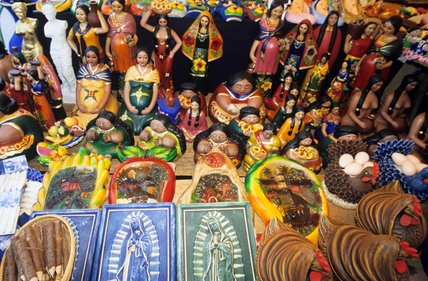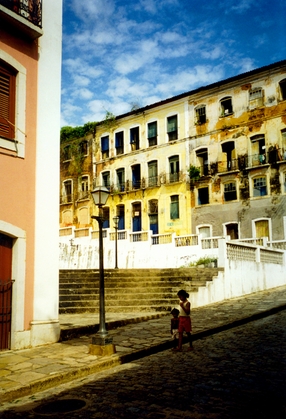Salvadoran History and Its People
Traveling to El Salvador can be exciting, but it’s best to prepare and get a sense of this rich culture and its history before landing. This will make your travel more enjoyable and you won’t feel totally like a fish out of water. Understanding this country’s history will go a long way to making conversation and will be appreciated by the locals.
Brief History of El Salvador
 Salvadoran history is interesting to say the least. This country has survived the many conquistadores and ruling parties that have permeated this region. They were once colonized by the Spanish as many other Central and South American countries, but managed to eventually win independence. The Nonoualquenos’ king, Anastacio Aquino would begin a revolt in this nation that would have repercussions for decades thereafter. It would be the foundation for the people of El Salvador to fight for all the injustices that came with Spanish rule and other foreign interventions. It would trigger what would come to be known as la matanza and other liberation movements taking place between the 1930s and the 1980s.
Salvadoran history is interesting to say the least. This country has survived the many conquistadores and ruling parties that have permeated this region. They were once colonized by the Spanish as many other Central and South American countries, but managed to eventually win independence. The Nonoualquenos’ king, Anastacio Aquino would begin a revolt in this nation that would have repercussions for decades thereafter. It would be the foundation for the people of El Salvador to fight for all the injustices that came with Spanish rule and other foreign interventions. It would trigger what would come to be known as la matanza and other liberation movements taking place between the 1930s and the 1980s.
In gaining independence from the Spanish, Criollo elite and Mestizo revolts occurred; although, they were stopped by the governor and general of Guatemala who sent troops to squelch these incidences. The momentum amongst these groups still continued until full independence from the Spanish was reached in 1821. Many of the provinces joined the First Mexican Empire of 1822 but El Salvador resisted. El Salvador eventually persevered and joined the United Provinces of Central America under Manual Jose Arce. In 1838, El Salvador finally became a fully independent republic; however, it came to be ruled by many wealthy families who had control of the lands and riches of this country. The country went from exporting indigo to coffee. As a result of this process, many lands were taken away from the majority of Salvadorans causing much unrest and discontent amongst the population.
Additionally, the military dictatorships that resulted from 1931 to 1979 caused much repression and civil unrest. This caused the killing of approximately 30,000 people, many were put in prison, and others were exiled. As the 1970s rolled around, great political instability was in play. Eventually, left-wing groups gained strength and began to oppose the dictatorship. A 12-year civil war followed and caused much unrest and turmoil. Today, although the Peace Accords are in place, El Salvador’s government and political position still rests on a very delicate balance.
Languages Spoken in El Salvador
At one time, before the Spanish colonized in this region, the Pipil, the Lencas, and the Chortis populated this area. The Pipils steadfastly opposed the Spaniards, and today their presence is still seen in El Salvador; although, only about 1% of the population speaks the Pipil language. This is mostly spoken by the elderly. Also seen is a population of Mestizo people, which is most directly a result of Spanish and Indian populations intermarrying.
In many of the rural areas of El Salvador, Caliche is spoken. This is a dialect encompassing slang terms and phrases that are really part of the Spanish language. Many people speak English throughout the country, but mostly in urban and business environments.
Foods of El Salvador
The first thing you might want to learn about is the food. Their food choices are closely related to things a person would eat in Central America. There are many vegetables grown in El Salvador. These include potatoes, pulses and rice, what is known as cassava, and loroco. Other vegetables, such as corn, red beans, coffee and sugar cane are also in abundance. The red beans are well-liked and cooked in different ways. One of the most popular ways is to cook the red beans in pupusas, which is a favorite.
To get protein, Salvadorans eat meat, fish, and poultry. Dairy products are also in abundance. In addition, there are many exotic fruits available. Some of the more popular ones are mangoes, coconut, and maranon.
Religion, Sports, and Music in El Salvador
 As in many of the Central and South American countries, Catholicism is the dominant religion practiced. There are other popular religious beliefs as well. There are also Anglicans, Lutherans, Pentecostal, Baptists, and even Seventh Day Adventists.
As in many of the Central and South American countries, Catholicism is the dominant religion practiced. There are other popular religious beliefs as well. There are also Anglicans, Lutherans, Pentecostal, Baptists, and even Seventh Day Adventists.
When you are looking at what is popular here, you will find that sports rank high. Soccer is the main sport, but others are also becoming quite popular. Baseball, basketball and volleyball are also on the list.
When visiting here, you will find that music and art are two things they are most proud of within the various communities. There are many favorite artists here. You can find many locations where you can hear music and view the art pieces that have been created. You will find art is conducive to the regional areas. It is not out of the realm to hear blaring music at street corners.
If you visit, try coming during the festive religious holidays where the locals wear costumes. This is a great experience and something really electrifying to see.
The one thing you will notice about the people here is that they are very welcoming. They treat you like family. One of their notable sayings is “mi casa es su casa.” This simply means “my house is your house” and they literary practice this. The people are warm and friendly and really make you feel at home.
Things to Remember
It’s important to always use gracias and por favor when someone gives you something or if you are asking for something. Gracias is just thank you and por favor is please. It’s always important to be gracious. If addressing a person, always use their title such as Dr., etc. It’s considered polite to do so. If addressing a man use señor, if addressing a married female use señora, and if addressing a young unmarried female use señorita.
Don’t point with your finger as this is considered very rude. If you have to beckon someone, use the nod of your head or wave your hand. Also, don’t be offended if a person runs late as time is a loosely used term here. It’s just part of the culture.
Hopefully, you now have an overall summation of what El Salvador is about and what to expect when visiting. It’s a great culture with an array of many sights, sounds, and artistic talents.




